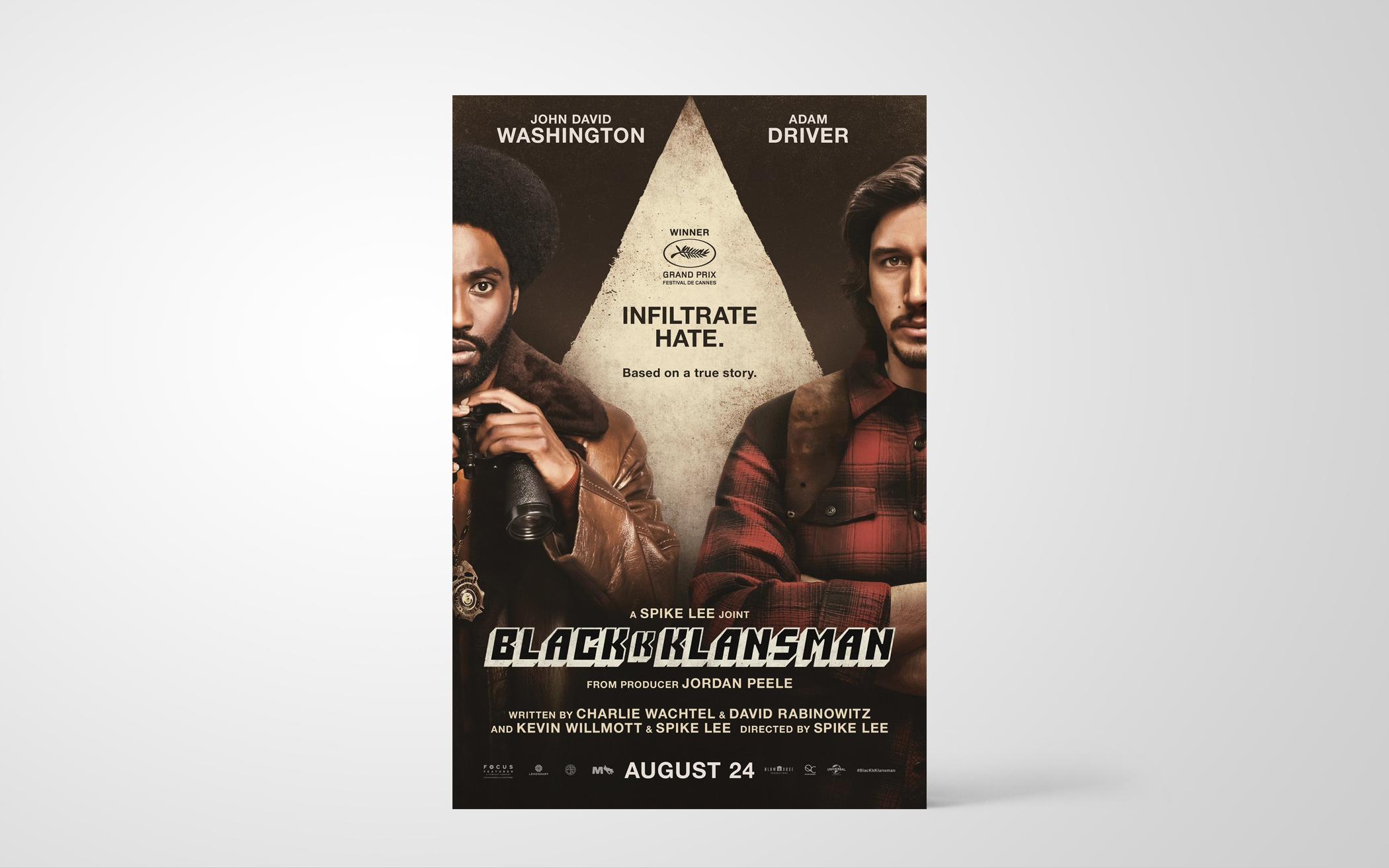Director Spike Lee’s latest film, BlacKkKlansman, is based on the memoir of former police officer Ron Stallworth. As the first black police officer in the Colorado Springs Police Department in the 1970s, he ended up infiltrating a local chapter of the Ku Klux Klan.
Ron Stallworth (played by John David Washington) straddles two worlds. While working in the majority white police department, he goes undercover in the local black power movement. Stallworth believes in the rule of law while also recognizing systemic injustice and the desire to resist. He is torn between his memberships in two very different brotherhoods.
Stallworth attends a speech by activist Kwame Ture in which Ture pushes his audience to discard the image of the black body that has been impressed upon all Americans through historical racism, and instead to embrace the beauty and power of the black body. Later, Stallworth meets one of the activists at a bar, where he joins a group on the dance floor moving in sync, a physical embodiment of unity.
When he then steps into the role of a prospective Ku Klux Klan member, things get really weird. Working as an intelligence officer, he sees a classified ad seeking people interested in forming a chapter of the KKK. He responds to the ad and ends up talking on the phone with the leader of the local group. Since as a black man he could not actually meet the local KKK representative in person, Stallworth’s white coworker, Flip Zimmerman (Adam Driver), is assigned to impersonate Ron at KKK meetings. He finds an angry, mostly uneducated group of people claiming that God is on their side as they work to suppress the non-white population.
Zimmerman is ethnically Jewish, though he has never practiced the Jewish religion nor claimed his Jewish identity; Stallworth tells him that like many light-skinned people of color, he is “passing” for white. Zimmerman initially thinks that he won’t take the anti-Semitic rhetoric personally. But eventually he experiences the effect of hate speech.
Lee connects the dots, sometimes a bit too pointedly, between historical white supremacy and the current revival highlighted by footage of the 2017 Charlottesville riots. Stallworth spends time talking with a young David Duke, a Grand Wizard of the Knights of the Ku Klux Klan; Duke continues to pursue his white nationalist agenda through political action even today. It’s no secret that David Duke was supportive of Trump’s rise to presidential power. The movie implies that Trump’s presidency is the result of years of racial division.
Sometimes those dots need connecting. Viewers who see KKK members in the film chanting “America first!” may be offended to see what they consider a patriotic slogan used by extremists, but the phrase was allegedly born out of the America First Committee, a group that wanted to keep the United States out of World War II. Their membership included a number of known anti-Semitic people.
The local KKK group together watches the extremely racist film The Birth of a Nation. Lee switches back and forth between showing their movie and a gathering where an older activist (Harry Belafonte) tells the true and harrowing story of the lynching of an intellectually challenged young man. In the same speech he shares the awful truth that President Woodrow Wilson showed The Birth of a Nation at the White House.
I left the film thinking about my own allegiances. We are all challenged to decide what “family” we will ultimately claim. Will we choose to be with those who look, talk, and believe the same way we do, or will we open our arms to our brothers and sisters, made in the image of Christ, whoever and wherever they may be? It sounds simple, but everything in us seems to push us towards “our own.” Who will we put first?
Note: Please be aware that this film is rated R for pervasive offensive language. (Focus Features)
About the Author
Kristy Quist is Tuned In editor for The Banner and a member of Neland Ave. CRC in Grand Rapids, Mich.

